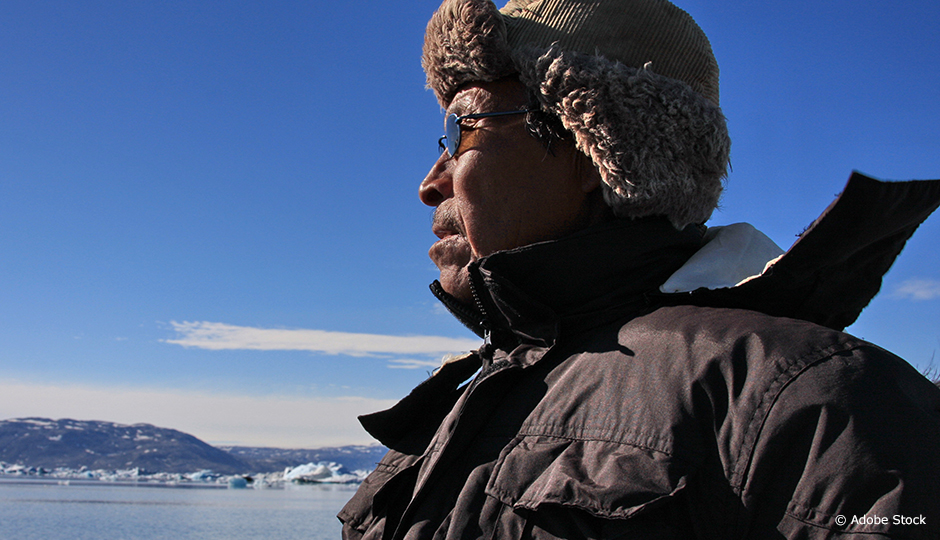The Inuit of Northern Canada are already feeling the concrete effects of climate change. This is particularly true for Inuit hunters, who contribute significantly to the food supply and ensure the subsistence of their communities.
Sea ice travel is becoming increasingly hazardous and is limited to a shorter season due to earlier spring breakup.
From 2008 to 2015, James Ford, a geography researcher at McGill University, recorded the routes of three full-time hunters from Iqaluit, Nunavut by means of GPS units carried by the hunters during their hunting trips. Every two weeks, the hunters also completed interviews on their movements, any challenges they encountered and the environmental conditions they experienced out on the land.
Through the collaboration of these hunters, James Ford was able to establish several observations. First, sea ice travel is becoming increasingly hazardous and is limited to a shorter season due to earlier spring breakup. Hunters are forced to deviate from their traditional routes to reach their usual hunting areas, taking longer land routes that are hard on their vehicles and require more fuel.
These new routes are proving expensive for hunters with limited financial means. Moreover, the move from sea ice to land has also changed their hunting habits: for example, they harvest more caribou and fewer seals or fish.
The project has helped the Inuit to map their territory and to identify areas that have become hazardous, information that they now use in planning their trips. In addition, the findings have been presented to communities in Nunavut to help them identify their own culturally appropriate solutions to reduce vulnerability. Finally, the research findings can be used to plan land-use development in response to the potential effects of climate change on the environment.




